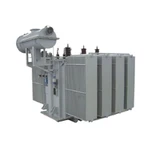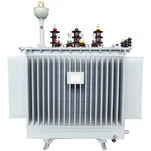1. Purpose
Partial Discharge (PD) Test
Detects localized insulation defects (e.g., voids, cracks, contaminants) that cause partial discharges (small electrical sparks) but do not immediately lead to complete breakdown.
Evaluates long-term insulation health and identifies early-stage degradation.
Withstand Voltage Test (Dielectric Strength Test)
Verifies the overall insulation strength by applying high voltage to ensure the transformer can withstand short-term overvoltages (e.g., lightning surges or switching events).
Checks if the insulation can endure high stress without breakdown.
2. Test Voltage
PD Test
Voltage is typically below or near the operating voltage (e.g., 1.1–1.5 times rated voltage).
Focuses on detecting discharges under normal or slightly elevated conditions.
Withstand Test
Applies much higher voltage (e.g., 2–3 times rated voltage for power-frequency tests, even higher for impulse tests).
Tests instantaneous breakdown resistance.
3. Detection Method
PD Test
Measures high-frequency pulses (kHz–MHz range) generated by partial discharges.
Uses sensors like HFCTs (High-Frequency Current Transformers), UHF probes, or acoustic detectors.
Withstand Test
Monitors leakage current or observes if breakdown occurs.
No partial discharge measurement-only checks for complete insulation failure.
4. Application & Standards
PD Test
Common in factory acceptance tests (FAT), condition monitoring, and diagnostic testing.
Standards: IEC 60270, IEEE C57.113.
Withstand Test
Performed during routine testing, type tests, and after major repairs.
Standards: IEC 60076-3 (Power Frequency), IEC 60076-4 (Lightning Impulse).
5. Outcome Interpretation
PD Test
Quantifies discharge magnitude (pC – picocoulombs) and locates defects.
High PD levels indicate insulation deterioration even if no breakdown occurs.
Withstand Test
Pass/fail result-either the insulation holds (pass) or fails (breakdown).
Summary Table
| Aspect | Partial Discharge Test | Withstand Voltage Test |
|---|---|---|
| Purpose | Detect localized defects | Verify overall insulation strength |
| Voltage Level | Near operating voltage (~1.1–1.5x) | High voltage (2–3x rated or higher) |
| Measurement | High-frequency pulses (pC) | Leakage current/breakdown observation |
| Test Type | Diagnostic/condition monitoring | Routine/type testing |
| Standards | IEC 60270, IEEE C57.113 | IEC 60076-3, IEC 60076-4 |
Key Takeaway
PD Test → Finds hidden insulation weaknesses before they cause failure.
Withstand Test → Ensures the transformer can survive extreme voltage stresses.
Both tests are complementary for assessing transformer insulation health!











